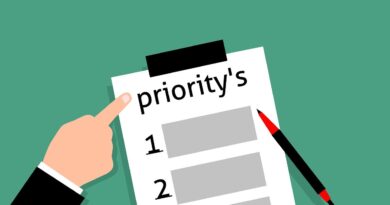Key Elements That Make A Well-Planned Event
Events can be an excellent marketing strategy for your company, as long as you plan and measure them effectively. A successful and well-planned event will boost your profile, help you attract new clients, and help you and your customers achieve your goals. But then, any kind of event, whether it is a family reunion or a business conference, needs an event planner to handle the majority, if not all, of the planning and coordination necessary to make the event a success. The location, the theme, the catering, and all other details are handled by the event planner. The worst that could happen would probably be losing the event planner and not being able to locate a suitable replacement in time, among other things that could go wrong, such as delays in food preparation, missing materials, or venue cancelation.
Aside from hiring a professional event planner, there are a few important factors that you, as the head organizer, need to remember in order to ensure that your event runs smoothly. The key elements include the venue, the date, the guest list, and the budget. You may also design a strategy for your event that will increase the likelihood that it will succeed by concentrating on these elements.
Proper Plans and Procedures
Actually, any form of event will require a proper plan and a procedure to accomplish the objective of your organization. It is challenging to host an event, though, and it gets much harder to accomplish your event goals while doing so. The planning and management of an event to accomplish the objectives of your business is one of the most rewarding but laborious tasks on earth. Every event, no matter how little or huge, straightforward or complex, needs careful and thorough planning. From event planning to budget, purpose, format, catering, and sound. Even the slightest mistake or incident can leave a negative impression on your customers and make them less likely to use your brand in the future.
Listed below are a few of the key elements that make up a well-planned event — an event that can be memorable for all of your guests. Read on.
The Objective of the Event
Every event type ought to include a primary purpose, event goals, and objectives that serve as success indicators. The event planner will be able to effectively plan the event and allocate time and resources if they are aware of the event’s goals. This being said, event organizers must set a reasonable goal, particularly a realistic attendance target, in order to achieve the success of a well-planned event. And once you have a clear understanding of what you are aiming for, you can begin developing a plan for the event goals that will enable you to achieve those goals.
In reality, it might be challenging to choose anything from the location to the sort of entertainment without a clear event theme. Therefore, as the primary planner, you must be aware of your goals. You must be very clear about the results you hope to achieve from your event. You must establish your objectives up front, whether you are organizing a big conference or a small, intimate dinner. Thus, you may assess the success of your event by defining goals.
Know Your Guests
Creating an event that resonates with the target audience can help to increase attendance and engagement. Building ties with prospective clients and customers can also be beneficial. And the first step to understanding them is by knowing who your target audience is. What characteristics do they have? What do they find interesting? Why do they do it? Knowing this makes it simpler to come up with event ideas. Also, to develop material and messaging that appeals to them personally. Additionally, event planners may design events that actually matter to their target audience by getting to know who they are.
It might be a waste of time and money to prepare an event without considering the audience. It is possible that the intended audience will not be interested in what is being offered. Or that the messaging will be misunderstood.
There are numerous ways to connect with your target audience and attract additional viewers and prospective customers. You should think about email marketing, social media, telemarketing, pay-per-click, and search engine optimization. Some of these strategies will work better than others depending on who the target audience is.
Choose the Best Venue
The success of your event depends on the type of event, the audience you are trying to reach, and the venue you choose. Thus, the goals of the organization, the venue, and the target audience should all be in harmony with one another.
Because the venue can affect the overall event budget and other supplementary costs, choosing the appropriate event location is crucial for a number of reasons. If the venue you choose is excessively pricey, you might have to make compromises on other essential event components. Additionally, audience participation, given that the venue can choose how many people will attend the event. You might not get the necessary level of audience involvement if the venue is difficult to get to. Or even if your venue does not have enough room for your visitors. And lastly, the overall atmosphere of the event, which will matter depending on the venue you choose. Your team members might not have fun if you choose a casual environment for a special corporate function. But they feel more at ease in a formal one.
Right Timing
Just like choosing the appropriate location, the right timing of the event is essential to putting together a successful, well-planned event. Numerous considerations, including days of the week, months of the year, holidays or other events on the calendar, the type of event, the location, and numerous local factors, must be taken into account in order to choose the best timing.
The right timing is crucial for any form of event preparation. By doing this, you can be sure that everything goes smoothly and that your visitors have a wonderful time. When choosing a timetable, you should take a few factors into account,. This includes your guests’ availability, the length of the event, the start and end times, the amount of time required for setup and cleanup, the accessibility of the venue you have chosen, and whether there are any noteworthy events on the same day that might affect timing or attendance.
Following careful consideration of each of these elements, you can start creating an event timeline. This will make it more likely that the event will go off without a hitch. Even for virtual events, event planning is essential. Virtual events allow for attendees from all around the world in various time zones. Therefore, in order to perform a lovely event, the event organizer needs to take the scheduling element into consideration.
Engaging Advertisements
Once you know who your audience is, you can start to think about what would interest them. Also, on how to best communicate that information. Additionally, it is important to remember the event’s broader objectives and make sure your material advances those objectives. Your event can be made successful by producing interesting content.
As a result, it is critical to produce content that appeals to your target audience. What value the event is going to bring to guests is one of the most crucial elements to take into account while planning an event. Produce engaging content that appeals to your target audience, provides the information they desire, or addresses their issues. Do not only employ your business’ obvious sales pitches; instead, add some value. It is necessary for the event to be successful.
The event website, promotional materials, and social media posts are just a few places where the content can be put to use. Event organizers may ensure that prospective attendees are enthusiastic about the event. With this, they will want to attend by producing engaging and aesthetically pleasing content. Additionally, well-done content might spark interest from individuals who might not have thought about going. This is possible by promoting the event before it happens.
Key Takeaway
Event preparation is undoubtedly time-consuming. But if you approach it strategically, it should not be stressful. Just keep in mind to assign your team members as much work as you can, and concentrate on maintaining control. The essentials for event preparation should support you at every stage. Additionally, even though there are several things to take into account when planning an event, the basic components mentioned above can serve as a solid basis for holding a well-planned event.



